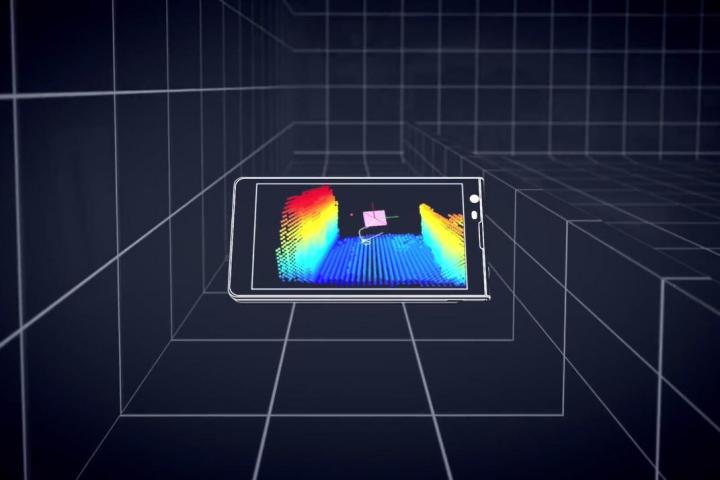
The driverless car, Glass, Project Loon, a smart contact lens. The Mountain View company always has something going on out back, evidenced by an announcement Thursday throwing the spotlight on yet another grand scheme: Project Tango.
Led by the Mountain View company’s Advanced Technology and Projects Group, Tango’s goal is to “give mobile devices a human-scale understanding of space and motion,” team member Johnny Lee explained in a Google+ post introducing the project.
Its focal point is a new kind of camera- and sensor-laden Android smartphone with highly customized hardware and software that allows the handset to track its movements in full 3D, in real-time, wherever you care to take it.
The 5-inch handset is capable of making more than a quarter of a million 3D measurements every second, constantly updating the location and position of the device as it maps a 3D model of the surrounding environment.

The team behind the advanced handset, which includes a collection of research labs, universities and industrial partners spanning nine countries, believe its revolutionary design could, for example, help map a 3D world for the visually impaired, offering auditory cues according to their position in an environment; give detailed directions on finding locations or items in small interior spaces; map your home by simply walking around it prior to going furniture shopping; and even offer “virtual windows to different worlds,” in other words, it could function as a kind of augmented reality device for games – “imagine playing hide-and-seek in your house with your favorite game character, or transforming the hallways into a tree-lined path,” the team suggests on its website.
As you can see, the suggested applications are certainly varied, but Project Tango says it’s now ready to see what others can do with the handset, and is about to begin sending out prototypes of the device to software developers interested in building apps that exploit the phone’s unique features. The first kits are set to go to developers interested in indoor navigation and mapping, single and multiplayer games which use physical space, and data processing.
And, of course, it’s also keen to hear from developers who have ideas for “applications we haven’t thought of yet.”
Google’s Project Tango announcement comes just a few months before its I/O conference in San Francisco, an event where we’ll no doubt be hearing a lot more about the direction and progress of its latest initiative.
